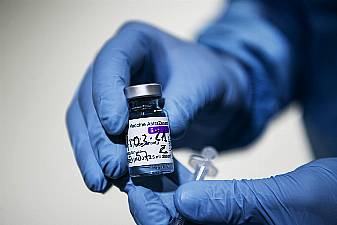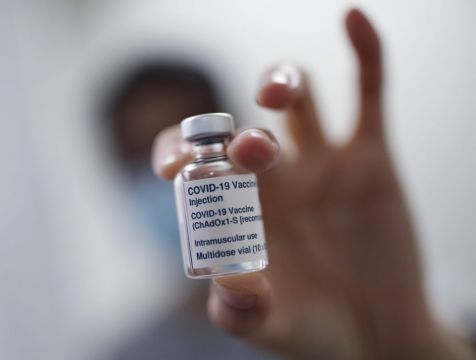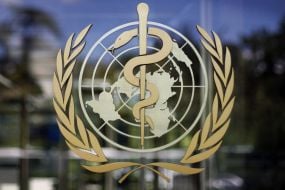British regulators said they have identified 30 cases of rare blood clot events associated with the AstraZeneca vaccine but stressed the benefits of the jab in preventing coronavirus outweigh any risks.
The Medicines and Healthcare Regulatory Agency (MHRA) said on Thursday that the risk associated with this type of blood clot is “very small” and that the public should continue to take up the vaccine when offered it.
The agency said it had identified 30 cases of rare blood clot events following use of the Oxford/AstraZeneca jab, out of 18.1 million doses administered up to and including March 24th.
Of these, it said it had received 22 reports of cerebral venous sinus thrombosis and eight reports of other thrombosis events with low platelets.
Responding to the data, a member of the Joint Committee on Vaccination and Immunisation (JCVI) said that taking up the vaccine was “by far the safest choice” at minimising risk of serious illness or death.
'Safest choice'
Professor Adam Finn, from the University of Bristol, said: “The report states that these cases are being very carefully investigated to better understand whether or not they may have any causal relationship with vaccination.
“Nevertheless, the extreme rarity of these events in the context of the many millions of vaccine doses that have been administered means that the risk-benefit decision facing people who are invited to receive Covid-19 vaccines is very straightforward: receiving the vaccine is by far the safest choice in terms of minimising individual risk of serious illness or death.”
Regulators said they had received no reports of such clotting events after the use of the Pfizer/BioNTech vaccine.
Germany suspension
It comes after it emerged Germany was suspending use of the AstraZeneca vaccine for people aged under 60 due to fears of a link with rare blood clots.

The head of the European Medicines Agency (EMA) has said that there is “no evidence” to support restricting the use of the AstraZeneca vaccine in any population.
The agency said a causal link between unusual blood clots in people who have had the vaccine is “not proven, but is possible”, adding that the benefits of the vaccine in preventing Covid-19 outweighed the risks of side effects.
This view is echoed by the World Health Organisation (WHO), which has urged countries to continue using the jab.







